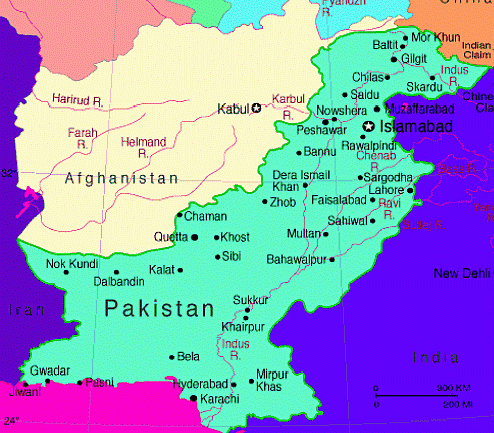 Another eyewitness yesterday linked Syed Mohammad Qaisar to a mass killing in 22 villages in Brahmanbaria that left more than a hundred people, mostly Hindus, dead on November 15, 1971.
Another eyewitness yesterday linked Syed Mohammad Qaisar to a mass killing in 22 villages in Brahmanbaria that left more than a hundred people, mostly Hindus, dead on November 15, 1971.
Alleged founder of Qaisar Bahini and a member of a Peace Committee, Qaisar, his cohorts, and the Pakistani army had carried out a synchronised attack on the Hindu majority villages following a meeting attended, among others, by the accused, said Abdul Matin alias Jamal, a freedom fighter from Nasirnagar in the district.
Matin, the 16th prosecution witness in the case against Qaisar, told the International Crimes Tribunal-2, that he had seen Qaisar leading around 100 members of the Pakistan army and Qaisar Bahini at the crime scene.
Tajul Islam, a member of Qaisar Bahini, which was allegedly formed by the accused, also accused Qaisar on March 30 of the mass killing. As a prosecution witness, Tajul testified that he had accompanied Qaisar on the killing spree.
Qaisar, a state minister in the Ershad regime, faces 16 charges, including genocide committed in Brahmanbaria and Habiganj during the war. The 73-year-old accused, however, pleaded not guilty in court. During his two-hour testimony, Matin, a resident of Guniauk under Nasirnagar, said he was a neighbour of Manjur Ali, a Muslim League leader and maternal uncle of Qaisar.
In mid-April, a Peace Committee was formed at Manjur Ali’s home and Qaisar was appointed as the chief patron of the anti-liberation organisation, said the 64-year-old witness.
Qaisar had also formed Qaisar Bahini comprising 400 to 500 people from Nasirnagar and his hometown Madhabpur to assist the Pakistan army and started looting and torching houses of the Hindu community there, said Matin.
On June 23, Qaisar and his cohorts had attacked the home of Golam Noor of neighbouring Haripur village, looted and burned down their houses and picked up Noor’s brother Golam Rouf, added Matin, also former chairman of Guniauk Union Parishad.
The witness said he had seen Rouf from his house when Qaisar and his men brought him to Manjur Ali’s house and later took him to his village house in Madhabpur.
Earlier, Rouf’s wife Nishamon testified that Qaisar and his cohorts had tortured her husband and father-in-law, taken away her husband and burned their house. Her husband was released in exchange of a ransom, but her father-in-law died after two weeks due to the torture, she added.
Noor also gave almost identical testimony over the incident.
Matin said being frightened of such incidents, he had gone to India and after taking training returned to Bangladesh in September to take part in the Liberation War and taken shelter at Nasirnagar.
“In the meantime, I got information that Manjur Ali, his two nephews, a grandson Kamal and members of Qaisar Bahini had looted our houses,” he said.
Matin said as they had information from sources that Qaisar, his force and the Pakistan army were planning a massive operation in Nasirnagar, freedom fighters in small groups took shelter in different places and he along with five to six people had took shelter in Chitna village.
“On the night of November 14, 1971, we got information from our sources that Qaisar, his men, nephews of Manjur Ali and like-minded people had held a meeting at the rest house of Manjur Ali and decided to carry out a massive operation in Nasirnagar on November 15 with the Pakistan army,” he said.
Matin said in the morning of November 15, Kutub Raza, a pro-liberation man from his village, had arrived in Chinta village and informed him that 1,000 to 1,200 Pakistani army and Qaisar Bahini gathered at Manjur Ali’s house to carry out the operation.
Getting the information, Matin and his group members had taken shelter at a cremation ground and around 9:30am they heard gunshots from nearby Gutna village, added the witness.
“From the hideout, we saw Qaisar and 40 to 50 members of Qaisar Bahini approaching Chitna village chanting slogans ‘Naraye Takbir Allahu Akbar’, ‘Pakistan Zindabad’. Some 40 to 50 Pakistani army men followed them,” said Matin.
“I could identify Tajul Islam and Joj Mia, who were Razakars of Haribpur village and some others,” said Matin, adding, “Then Qaisar divided his men in two groups and sent one group towards Burunga village and led another group towards Chitna village.”
The next day he along with his group members visited five villages including Chitna secretly and found 31 people were killed there, said Matin, adding that later he had learned that more than a hundred people, mostly Hindus, were killed in that attack on 22 villages.
Matin, who identified Qaisar in the courtroom and sought justice, said the accused had fled the area before December 8 when Madhabpur was freed.
The three-member tribunal led by Justice Obaidul Hassan, with members Justice Md Mozibur Rahman and Justice Md Shahinur Islam, adjourned the proceedings until today when Matin will face cross-examination.





